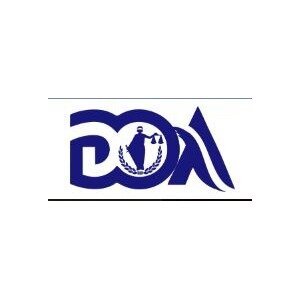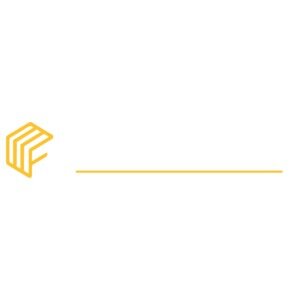Best Sanctions & Export Controls Lawyers in Ikoyi
Share your needs with us, get contacted by law firms.
Free. Takes 2 min.
List of the best lawyers in Ikoyi, Nigeria
About Sanctions & Export Controls Law in Ikoyi, Nigeria
Sanctions and export controls are vital areas of law that govern the flow of goods, services, technology, and funds across borders. In Ikoyi, Lagos State, Nigeria, these regulations aim to ensure that the country adheres to both local legal requirements and international agreements. Authorities actively enforce sanctions and export controls as part of Nigeria’s commitment to international security, anti-money laundering, and the prevention of the proliferation of weapons and illicit activities. Nigerian export controls affect individuals, businesses, and organizations involved in foreign trade, financial transactions, or international collaborations, making compliance essential for all stakeholders.
Why You May Need a Lawyer
There are many scenarios where people or businesses in Ikoyi may require the services of a lawyer specializing in sanctions and export controls:
- If you are expanding your business internationally and need to comply with export regulations
- If your company’s goods, technology, or services are flagged as sensitive or dual-use
- If you are involved in transactions with countries or individuals subject to Nigerian or foreign sanctions
- When facing an investigation or enforcement action from regulatory agencies
- When importing or exporting products that may need licenses or permits
- If you are unsure how international sanctions or embargoes affect your trade operations
- For due diligence in mergers or acquisitions that may involve sanctioned entities
- If you receive a freeze notice on funds or assets due to suspected sanction breaches
- To navigate challenges posed by changing international sanctions lists
- To provide employee training and create compliance programs for your organization
Local Laws Overview
In Nigeria, sanctions and export controls are regulated under several national laws, regulations, and international commitments. Key authorities include the Central Bank of Nigeria, Nigeria Customs Service, and the Nigerian Financial Intelligence Unit. The major legislative framework and regulatory requirements include:
- The Terrorism (Prevention & Prohibition) Act, which obliges firms to screen transactions for links to terrorism
- The Money Laundering (Prevention and Prohibition) Act, which outlines procedures for reporting suspicious transactions relating to sanctions evasions
- Nigeria Customs and Excise Management Act, regulating export and import of goods and requiring licenses for controlled products
- Nigeria’s participation in United Nations Security Council Resolutions, which obligate the country to enforce international sanctions lists
- Presidential Executive Orders and directives from relevant ministries affecting trade and foreign exchange
In Ikoyi, as a business and diplomatic hub, companies and individuals must be vigilant in following both local laws and international requirements, especially when their activities reach beyond Nigeria’s borders.
Frequently Asked Questions
What are sanctions and export controls?
Sanctions are legal restrictions imposed on individuals, companies, or countries to limit or prohibit trade and financial transactions, usually for security, political, or policy reasons. Export controls restrict the movement of specific goods, technology, or information out of the country.
Who enforces sanctions and export controls in Nigeria?
Sanctions and export controls are mainly enforced by the Central Bank of Nigeria, Nigeria Customs Service, and the Nigerian Financial Intelligence Unit. Internationally, Nigeria must also comply with United Nations sanctions.
Are there specific products that are controlled or restricted for export?
Yes, Nigeria restricts or controls the export of certain products such as oil and gas, minerals, pharmaceuticals, military and dual-use items, and some agricultural goods. Exporters commonly require permits or licenses for these items.
How can I check if a person or company is under sanctions?
You can check the sanctioned persons and entities list published by the Nigerian government, relevant international organizations, or through compliance screening tools. Consulting a qualified lawyer can help interpret these lists efficiently.
Can I do business with a company in a sanctioned country?
Doing business with countries or entities under sanctions without proper authorization is prohibited and can lead to severe penalties. Legal advice is necessary to assess any exceptions or licensing requirements.
What are the consequences of breaching sanctions or export controls?
Violations can result in criminal or civil penalties, including fines, asset seizures, imprisonment, and reputational damage. In severe cases, organizations may be banned from conducting future trade.
Do sanctions apply to both goods and financial transactions?
Yes, sanctions can impact both physical goods and financial transactions, such as payments, fund transfers, investments, and provision of services.
Are banks in Ikoyi responsible for monitoring compliance?
Yes, banks and other financial institutions in Ikoyi must screen transactions and customers for sanctions compliance and report suspicious activities to authorities.
What steps should companies in Ikoyi take to comply with export control laws?
Companies should establish robust compliance programs, conduct regular due diligence, screen business partners, keep up with legal changes, and provide regular training on export control requirements.
Can I appeal if I am wrongly listed under a sanction?
Yes, individuals and entities who believe they have been mistakenly listed may appeal or request a delisting through the legal procedures provided by the relevant Nigerian authority or, in some cases, the originating international body.
Additional Resources
Individuals and companies seeking further information or assistance can refer to the following resources:
- The Central Bank of Nigeria - For guidance on financial sanctions and compliance standards
- Nigeria Customs Service - For information regarding export and import control procedures
- Nigerian Financial Intelligence Unit - For suspicious transactions and reporting obligations
- Federal Ministry of Justice - For updates on national legislative changes and sanctions regulations
- Local branches of international organizations such as the United Nations Information Centre in Lagos
- Professional legal associations and compliance consultants based in Ikoyi
Next Steps
If you need legal help concerning sanctions or export controls in Ikoyi, Nigeria, start by gathering all relevant business, transaction, or personal documents. Identify your specific legal concerns and, if possible, outline your current business practices related to exports or international transactions. Contact a lawyer or law firm with expertise in this field to schedule a consultation. Make sure you discuss all your activities that may be subject to sanctions or export controls to ensure complete compliance and minimize risks. Staying informed and proactive is essential for successful navigation of this complex legal landscape.
Lawzana helps you find the best lawyers and law firms in Ikoyi through a curated and pre-screened list of qualified legal professionals. Our platform offers rankings and detailed profiles of attorneys and law firms, allowing you to compare based on practice areas, including Sanctions & Export Controls, experience, and client feedback.
Each profile includes a description of the firm's areas of practice, client reviews, team members and partners, year of establishment, spoken languages, office locations, contact information, social media presence, and any published articles or resources. Most firms on our platform speak English and are experienced in both local and international legal matters.
Get a quote from top-rated law firms in Ikoyi, Nigeria — quickly, securely, and without unnecessary hassle.
Disclaimer:
The information provided on this page is for general informational purposes only and does not constitute legal advice. While we strive to ensure the accuracy and relevance of the content, legal information may change over time, and interpretations of the law can vary. You should always consult with a qualified legal professional for advice specific to your situation.
We disclaim all liability for actions taken or not taken based on the content of this page. If you believe any information is incorrect or outdated, please contact us, and we will review and update it where appropriate.










